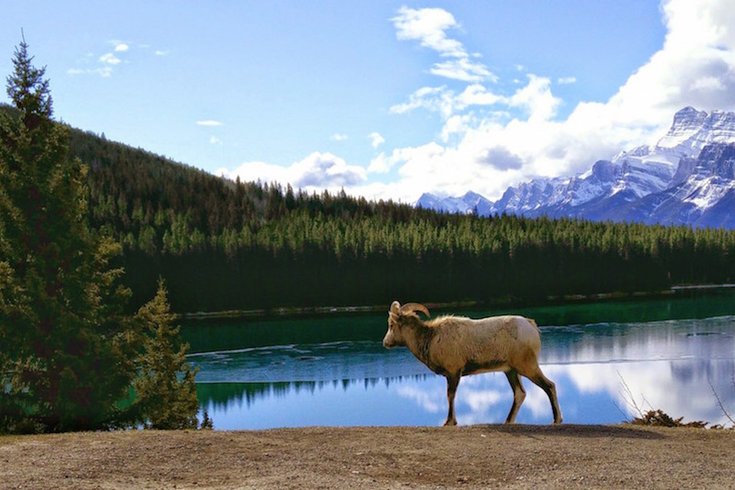
December 16, 2015
 Contributed Art/VitalityAir.com
Contributed Art/VitalityAir.com
Banff National Park in Alberta, Canada, where Vitality Air bottles fresh mountain air to sell to residents of smoky cities.
The air quality in some Chinese cities has dropped so precipitously that this month Beijing had to issue a "red alert," shutting down schools and restricting the number of cars on the road in an effort to beat back the smog.
So a Canadian company came up with the perfect product: fresh air in a bottle.
As CNN reported, a company called Vitality Air has been bottling air at a park in the Rocky Mountains and selling the canisters for $14 to $20 each. It began selling its product in China last month and sold 500 bottles within two weeks.
"In the setting of Banff National park in Alberta, Canada we have painstakingly distilled and bottled the air in this pristine UNESCO World Heritage Site using our patented filtration technique. The air is collected over days, concentrating the essence of where it was captured. Perfection like this takes time," the company's website says.
One 7.7-liter bottle costs $23 USD and contains enough pure mountain air for approximately 150 one-second inhalations, according to the company. That's around 15 cents per breath for two-and-a-half minutes of huffing.
Comments listed on the company's testimonial page include "Finally. Now I can stop breathing regular air and only breathe premium air" and "IT TASTE LIKE AIR VERY GOOD THANK U."
CEO Moses Lam told Metro News Calgary that his business started as a joke when he sold a Ziploc bag full of air on eBay for 99 cents. He realized he could make real money when a second bag of air sold for $168.
A professor from Hong Kong Polytechnic University warned CNN that just huffing imported air won't help China's pollution problems.
"One bottle of air wouldn't help. I would be very cautious," he said.
Not to mention that shipping air from Canada to China is not exactly environmentally friendly. In 2009, science writer Fred Pearce wrote in the Daily Mail that "just 16 of the world's largest ships can produce as much lung-clogging sulphur pollution as all the world's cars."
Perhaps the next trend in China will be to reject imported air in favor of local, artisanal oxygen.